TV Tinsel: Ken Burns tackles 'super fascinating story' of 'The American Revolution'
Published in Entertainment News
Documentary filmmaker Ken Burns is on the war path again. He’s already created memorable series on the Vietnam War, the Civil War and World War II. Now he’s tracking the mother of those wars, the war for American independence.
Ten years in the making, “The American Revolution” premieres on PBS Sunday, Nov. 16, and airs every night through Nov. 21. This six-part undertaking was particularly difficult, says Burns, because of the lack of photos, videos, or archival material to photograph.
“There's something super daunting about not having photographs and newsreels.” he says. “But I don't think that was stopping us... What's really important is that we needed to get to a place where we could have the chops to be able to handle it.
“And I think ‘Vietnam’ helped provide us with those chops of the complexity, the multilayered narratives that have to take place, the different points of view.”
Burns has a way of humanizing and energizing what we’ve learned in our dry history books. “There's a lot of superficiality to the way we teach any kind of history, and it sometimes migrates — as certainly the Revolution has done — into mythology,” he notes.
“So the chopping down of the cherry tree and never telling a lie, and throwing a dollar coin, ‘Don't fire until you see the whites of their eyes,’ all that kind of mythology... These are public, the first public sightings of stuff. We have been deep in the scholarship for almost a decade. So we have been reading the books.”
He says his mission is not to “subscribe to any one historiography. That is to say, one perspective and interpretation of history. We just are calling balls and strikes... We've got a complicated story because that's the way life is. And that is, of course, therefore the way all of history is. And this is, more than anything else, a super complicated and super fascinating story.”
The real war was far more gruesome than people think. “This is a revolution, a bloody, bloody revolution, superimposed by a bloody civil war, superimposed by a bloody world war,” says Burns.
“The cast of characters is extraordinary. There's an unbelievable variety of a cast of characters. I think that's the thing for me, is just the sheer sense of how long it took, how bloody it was, how anybody involved in it didn't know they were who they were.
“George Washington didn't know he was going to be George Washington. The sense of contingency and the idea that it might not turn out the way we know that it did was the surprising aspect for us to try to work into our work,” he says.
“I think it has to do with no photographs and no newsreels and that kind of mythology that we think that if we REALLY accept the violence of our revolution, that somehow it will diminish all those great ideas taking place in Philadelphia, the Declaration, and then, a decade later, the Constitution. It doesn't,” he says.
“This is our story. It's our creation story. And we should be enormously proud, but not burdened by all the mythology that has attended to it up to this point.”
Co-producer Sarah Botstein explains how they go about creating such a comprehensive series. “We sort of work backwards, which might sound silly, but once we figure out around when we're going to broadcast, we back up. And part of our process is enormously fluid. So we're ... always researching. We're always finding new material to add. We're always looking for an extra detail, another archive, a different interview, another piece of music. So that's a very fluid system all the way to the last day when we're handing the film off to PBS.”
They have to raise the money to push the process, she says. Then the writer, Geoffrey Ward, goes to work on the text. “He really immerses himself in books and articles and familiarizing himself with a subject while we try to figure out who's alive that knows about the subject,” she says.
“So whether it's an academic, a writer, a politician, a relative, somebody who has direct relationship to the history. And we spend a lot of time with those people, getting to know them, getting them to help us figure out what stories we should tell, which things we should focus on, things that are complicated that we should really spend time on.
“And then Geoff gets to work writing. We get to work researching. We figure out when we're going to do those interviews. And we do do a lot of shooting while Geoff is writing. So that we're never, I think Ken talks about this all the time, we never go to an interview subject with a script... We have a road map of what we think we might ask somebody, but we just sit and have a two- or three-hour conversation with them.
“And we're meticulous about what's in the archives,” she continues, “where they come from, how we're going to license them later. And that's true for — in this film — paintings, maps, pamphlets, documents, court reports, roll calls, money, any kind of two-dimensional object that we could find from the time that would inform the history.”
Vandervoort melts hearts in Christmas movie
Laura Vandervoort stars as a glass blower who gets no "satisfaction" in the new Hallmark Christmas movie, “Melt My Heart This Christmas,” premiering Nov. 23 (on Hallmark+ the next day). She portrays an artist whose work is constantly rejected by the chief of the Christmas market, played with authoritarian aplomb by Stephen Huszar.
So she seizes the chance to work with a legendary glass blower and conceals her own creations under a pseudonym only to be discovered with troubling consequences.
Vandervoort, who’s best known for “Smallville,” tells me she suffered from meningitis when she was an infant. “I fought so hard as a baby I thought there must be a reason for that, and I should really try to make something of the life that I’ve been given, that I wasn’t supposed to have,” she says.
“And my dad wanted a son, so I went into martial arts and ended up falling in love with it. And it was a great sport for me. I was 7 when I started. I did it till I was 20 and got my second-degree black belt doing it.”
Her parents approved of her involvement in the sport. “They would’ve been proud of everything, but my dad forgave me that I was a girl, and I ended up teaching martial arts for quite a while. And then acting picked up, so I had to stop teaching.”
She began performing when she was a child doing commercials. “And I did children’s TV shows like ’Goosebumps’ and ‘Are You Afraid of the Dark?’ and Disney things. Eventually when ‘Smallville’ happened and I got the opportunity to play Supergirl, things sort of changed and I was seen in a different light and a little edgier and sci-fi sort of accepted me into their genre. It sort of snowballed from there.”
Brendan Fraser opts for 'Rental'
It may sound a little strange, but the Japanese have a custom that makes sense. The culture puts much stock in family and it occasionally “rents” a family member. It might be a husband who isn’t there, or a visitor to a shut-in elder, or a date to the prom. These “roles” are filled by actors. Thus the plot for the new film “Rental Family” opening Nov. 21 and starring Brendan Fraser as an out-of-work actor who takes such a gig.
It's perfect for the Academy Award-winning actor who was so touching in the film, “The Whale,” now streaming on HBO Max.
“I act because there's always something to do.” he says, “I love having homework, things to think about; the travel that a film career takes us on. You can visit anywhere in the world but it gives purpose and meaning to it, and texture to the personal mythology of what we all have — our one life,” he says.
“Life's a series of challenges. You meet them, overcome them and learn something. I like looking back at my accomplishments acknowledging who I was at different periods of my life either heaving a sigh of relief, or thinking that was a time that I thought differently.
“Having a film career helps a lot. It's a real journey of one's experiences. Lots of films I've been in only now, I look back, and say, ‘Wow. that's what that film was about.’ Whatever I thought it was it was, the filmmaker's and the audience's perception — and it takes on a life of its own.”
Duchovny explores 'Malice'
David Duchovny is applying his expertise to a new revenge-thriller, “Malice,” premiering on Prime Video Friday, Nov. 14. He plays a family man threatened by an intrusive outsider played by Jack Whitehall.
Duchovny set the world on its axis with the super popular “The X-Files.” Today he says, “It’s hard when you have a show like ‘The X-Files,' it’s hard to establish yourself in another venue because it’s just so pervasive.
“I think when I choose wisely the jobs that I do, I usually choose those I feel I’m not up to. Whether or not I am up to them, they’re always the best jobs to take. And it’s the jobs I know I can do that are usually the worst jobs. So if I have any criterion, it’s often: I might not be up to it. It’s not up to me to judge whether or not — in the end — I was or wasn’t. It’s up to everybody else. But I have my own opinions.”
He says actors often feel that way. “I think it’s thrilling. I think it’s the unknown, the fact that you can have a career in which you're really challenged in a way that is different from the way you were challenged the last time. It’s a fascinating kind of unsettled life, but if you're the certain kind of person that enjoys that challenge, then it’s there for you. And I think that’s my thing.”
———
©2025 Tribune Content Agency, LLC
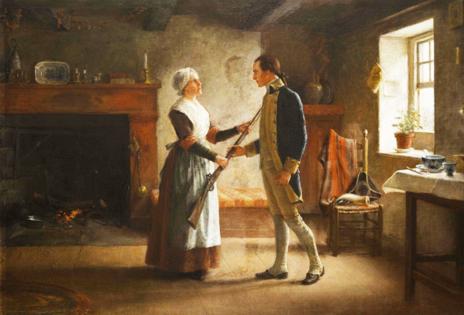
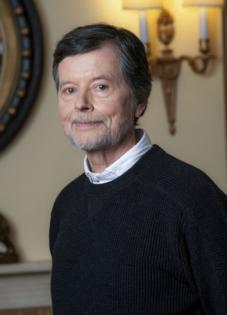
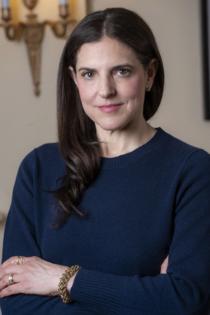
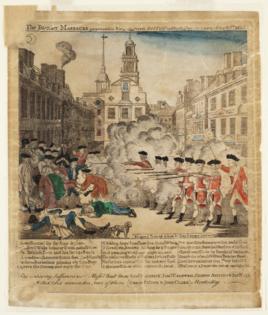
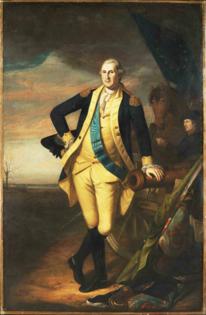

















Comments